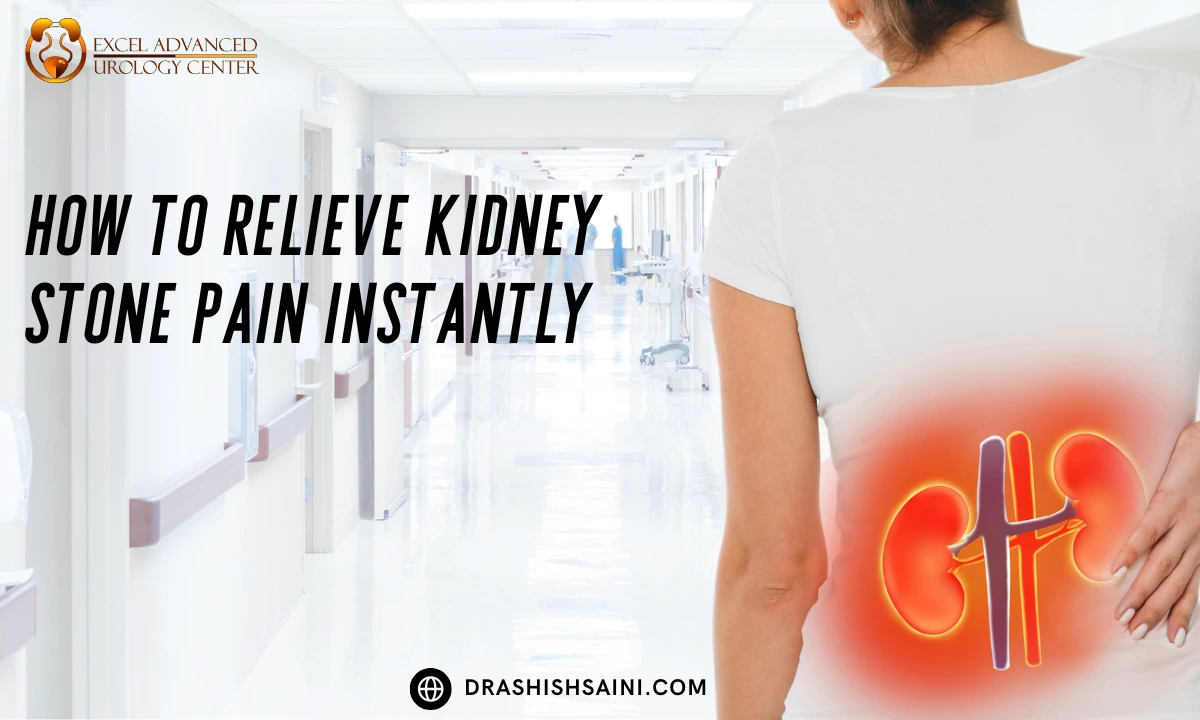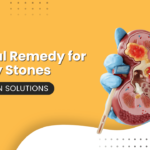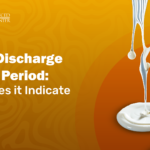

Dealing with kidney stone pain can be enervating and is far from fun. If the stone pain is severe, it will interrupt your life and cause excessive levels of discomfort day-to-day. Knowing how to relieve kidney pain at home will help you feel comfortable and safe while you’re treating the underlying problem. Try out the following home remedies.
There are a number of different things that can cause pain, from infection to kidney stones and beyond. While easing your pain might seem like never forgoing a doctor’s visit to get a treatment plan that will remove the source of the pain. Some common causes of kidney pain include infections along the urinary tract and urinary stones.
What are kidney stones?
We include products we think are useful for our readers. If you buy through links on this page, we may earn a small commission. Here’s our process. They are hard deposits that form in the kidneys. These stones have to travel through the urinary tract to exit the body. Passing a kidney stone can be very painful. However, there are options for managing kidney stone development and pain at home. Most cases of them are treatable with pain medications, fluid therapy, or another type of medical intervention. There are also steps people can take to reduce their risk of developing stones in the kidney.
Not all of these remedies require a prescription or even a medication. However, if it becomes too painful, it is best to seek medical attention. In this article, we discuss six methods for preventing or managing this at home.
Where do kidney stones come from?
These stones’ pain develops when certain substances, such as calcium, oxalate, and uric acid, become concentrated enough to form crystals in your kidneys. The crystals grow larger into “stones.” About 80% to 85% of them are made of calcium. The rest are uric acid stones, which form in people with low urine pH levels.
Take steps to bypass kidney stones
Even though kidney stones pain can be common and recur once you’ve had them, there are simple ways to help prevent them. Here are some strategies that can help:
1. Drink enough water.
A 2015 meta-analysis from the National Kidney Foundation found that people who produced 2 to 2.5 litres of urine daily were 50% less likely to develop urinary stones than those who produced less. It takes about 8 to 10 8-ounce glasses (about 2 litres total) of water daily to produce that amount.
2. Skip high-oxalate foods.
Such foods, which include spinach, beets, and almonds, obviously raise oxalate levels in the body. medium amounts of low-oxalate foods, such as chocolate and berries, are fine.
3. Enjoy some lemons.
Citrate, a salt in citric acid, binds to calcium and helps block stone formation. “Studies have shown that drinking ½ cup of lemon juice concentrate diluted in water each day, or the juice of two lemons, can increase urine citrate and likely reduce kidney stone risk.
4. Watch the sodium.
A high-sodium diet can trigger kidney stones because it increases the amount of calcium in your urine. guidelines suggest limiting total daily sodium intake to 2,300mg.
5. Cut back on animal protein.
Eating too much animal protein, such as meat, eggs, and seafood boosts the level of uric acid. If you’re prone to stones, limit your daily meat consumption to a quantity.
Tips for kidney stone pain relief
1. Water
When passing a stone, expanding your water intake can help speed up the process. Strive for 12 glasses of water per day instead of the usual 8. Once the stone passes, you should continue to drink 8 to 12 glasses of water each day. Dehydration is one of the main risk factors for urinary stones.
2. Lemon juice
You can add freshly squeezed lemons to your water. Lemons contain citrate, which is a chemical that prevents calcium stones from forming. Citrate can also break up small stones, allowing them to pass more easily.
3. Basil juice
Basil contains ethnic acid, which helps break down kidney stones and reduce pain. It’s also full of nutrients. This remedy has been used traditionally for digestive and swelling disorders.
4. Apple cider vinegar
Apple cider vinegar contains ethnic acid. Acetic acid helps dissolve kidney stones. In addition to flushing out the kidneys, apple cider vinegar can help alleviate the pain caused by the stones.
5. Pomegranate juice
Pomegranate juice has been used for centuries to improve overall kidney function. It will flush stones and other toxins from your body. It’s packed with antioxidants, which help keep the kidneys healthy and may have a role in preventing their forming.
6. Manage weight
146 people with recurring kidney stones, 43.8% were obese or overweight Although this does not suggest causality, there may be a link between weight and urinary stones. The study believes that metabolic conditions such as high cholesterol and high blood pressure may contribute to kidney stone formation.
7. Avoid sugary or caffeinated drinks
Carbonated, caffeinated, and alcoholic drinks can all increase a person’s risk of developing kidney stones. Research suggests that drinking caffeine can increase the risk of stones Source.
8. Meet the daily calcium requirements
For people with calcium oxalate stones, which are the most common kind, finding sources of calcium can help them meet their daily calcium requirement and manage their risk of kidney stones.

Home Remedies on how to stop kidney stone pain
A person with kidney stones should drink plenty of water. Before trying any home remedies for kidney stones, it is important to seek consultation with a doctor, especially when a person has an underlying medical condition or takes medications regularly.
Also, although many of these remedies may help relieve the symptoms or reduce the risk of future recurrences, kidney stones can cause intense pain. Home remedies may be best alongside more traditional treatments. Some people may even need surgery to extract or break up the stones, as well as intravenous pain medication.
- The sections below discuss some home remedies for easing the symptoms of kidney stones.
1. Drink water
Drinking water is one of the easiest ways to treat and prevent kidney stones, as dehydration is one of the main causes. Most health authorities recommend drinking six to eight glasses of water Trusted Source per day to prevent dehydration.
2. Drink lemon juice
Lemons contain citrate, a compound that helps break down calcium deposits and slow their growth. A 2019 cross-sectional study by trusted Sources found that sugar-free lemon juice was an effective remedy for kidney stones. In fact, consuming only 4 ounces of lemon juiceTrusted Source can increase citrate levels effectively.
It is important to examine labels carefully when purchasing juice products. Many lemon juice products contain small amounts of pure lemon extract and high amounts of sweeteners, which can actually increase the risk of kidney stones.
Buying pure extract or purchasing fresh lemons and squeezing them at home are the easiest ways to get undiluted lemon juice. Good alternatives include melon and orange juice, which both contain high levels of citric acid. A range of lemon juice products is available for purchase online.
3. Consume apple cider vinegar
Apple cider vinegar also has citric acid content that may help dissolve calcium deposits. According to a 2019 study trusted Source of over 9,000 people found that those who consumed vinegar had a significantly lower risk of kidney stones.
However, more research will be necessary to confirm the benefits of apple cider vinegar, specifically, as a standalone natural remedy for kidney stones. Apple cider vinegar and its supplements are available to purchase online.
4. Manage weight
According to a 2019 study trusted Source of 146 people with recurring kidney stones, 43.8% had obesity or overweight.
Although this does not suggest causality, there may be a link between weight and kidney stones. The study authors believe that metabolic conditions such as high cholesterol and high blood pressure may contribute to kidney stone formation. Managing body weight and adopting a nutritious, balanced diet are important steps for the prevention and treatment of kidney stones.
5. Avoid sugary or caffeinated drinks
Carbonated, caffeinated, and alcoholic drinks can all increase a person’s risk of developing kidney stones. Research suggests that drinking caffeine can increase the risk of stores’ trusted Sources. Drinks and sodas that contain real or artificial sugars can also lead to kidney stores Trusted Source.
Also, foods high in sugar, salt, and fat are known to increase the risk of kidney deposits and intensify the symptoms.
6. Meet the daily calcium requirements
For people with calcium oxalate stones, which are the most common kind, finding sources of calcium can help them meet their daily calcium requirement and manage their risk of kidney stones.
People can get calcium from:
- Dairy products
- Kale
- Broccoli
- Grains
- Chinese Cabbage
- Fish with soft, Edible bones
- Calcium-enriched cereals and juices
Risk factors of Kidney Stone
According to the most recent National Health and Nutrition Survey, around, 8.8%Trusted Source of adults in the United States has kidney stones.
Males are more likely to develop them than females. Specifically, around 10.6% of Trusted Source males experience such types of stones, compared with 7.1% of females. Obesity and diet are also primary risk factors for them. around 11.2% of Trusted sources of people with obesity develop them. Diets high in dehydrating foods and compounds — such as sugar, salt, and alcohol — may also contribute to the formation of kidney stones.
FAQ’S
1. What Is the Best Kidney Stone Pain Relief Position?
2. Symptoms of kidney stones pain?
3. Can coffee help with kidney stone pain?
Yes, moderate coffee consumption may help prevent kidney stones by increasing urine output. However, excessive caffeine intake can lead to dehydration, which can worsen kidney stone pain.
4. What foods should I avoid to prevent kidney stone pain?
Avoid high-oxalate foods like spinach, beets, chocolate, and nuts, as they can contribute to kidney stone formation. Limit sodium and animal protein intake as well.
5. How to stop kidney stone pain immediately?
To stop kidney stone pain immediately, try drinking plenty of water, taking over-the-counter pain relievers like ibuprofen, and applying a heating pad to the affected area. Drinking lemon juice or apple cider vinegar mixed with water may also help break down stones and ease discomfort. If the pain is severe, seek medical attention.
6. What is the fastest way to relieve kidney stone pain?
The fastest way to relieve kidney stone pain is by staying hydrated, using pain relievers, and trying natural remedies like lemon juice or apple cider vinegar. Warm compresses or a heating pad on the lower back can also help reduce pain. In severe cases, prescription pain medications or medical intervention may be necessary.
7. How can I relieve kidney pain instantly at home?
To relieve kidney pain instantly, try:
- Drinking water to flush out stones
- Taking pain relievers like ibuprofen or acetaminophen
- Using a heating pad on your lower back
- Drinking lemon juice or apple cider vinegar mixed with water
- Trying herbal remedies like basil juice or pomegranate juice
8. What is the best position to relieve kidney stone pain?
The best positions for kidney stone pain relief include:
- Lying on the opposite side of the pain
- Keeping your knees to your chest while lying down
- Sitting with a heating pad on your lower back








